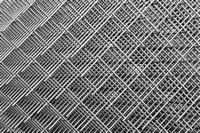Have we solved the nanomaterials problem?
 Nick Hall for 3D Printing Industry: Researchers at Virginia Tech have potentially cracked a conundrum that has tormented the scientific community and created a viable method to produce usable metallic nanomaterials. Of course, 3D printing provided the answer and this really could change the world we live in.
Nick Hall for 3D Printing Industry: Researchers at Virginia Tech have potentially cracked a conundrum that has tormented the scientific community and created a viable method to produce usable metallic nanomaterials. Of course, 3D printing provided the answer and this really could change the world we live in.
Nanostructures have the capacity to disrupt a number of industries and they can revolutionize material science, medicine and battery technology to name just a few. If we can truly harness nanomaterials then almost every facet of modern life will change, from the clothes we wear to our water filtration system. It’s one of those breakthroughs that really could change everything.
So the potential is immense, but nanostructures are complex to produce in usable form. Scaling them up to a workable size has caused issues with the structural integrity, performance and consistency. Outside of the theoretical setting, they have largely frustrated us. Cont'd...
Featured Product

